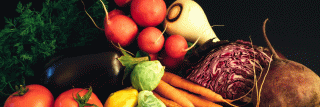Avoid HALT
Be most careful then how you conduct yourselves: like sensible men, not like simpletons. Eph. 5:15, NEB.
Through the writings of Paul we find woven the thread of self-control as a Christian virtue. He writes: “This is the will of God, that you should be holy: . . . each one of you must learn to gain mastery over his body, to hallow and honour it” (1 Thess. 4:3, 4, NEB). The implication is that we must respect the Creation laws. The context is often one of avoiding lust-that is, craving for illicit pleasure.
Recovering alcoholics and addicts have much wisdom to share about such physical battles. An alcoholic may be “dry,” that is, not drinking, but still have strong cravings to “feel good” by drinking. Only through surrender to God’s power can the alcoholic learn true sobriety and obtain victory. But God’s power isn’t like a magic wand that instantly solves any problem-living in connection with God involves making wise choices every day.
Some of these choices have to do with respecting the powerful influence of those places and people that can lure a person back into drinking. It means staying away from such places and people. The 12 steps of recovery offer practical guidelines for building spiritual strength. Other choices involve participation in a fellowship of recovering people, such as Alcoholics Anonymous (AA), which offers encouragement and spiritual strength for working through these steps. AA teaches a helpful motto-“Avoid HALT”-that has merit for any person seeking to live a positive Christian life.
“Avoid HALT” stands for “avoid becoming hungry, angry, lonely, or tired (HALT).” Irregular or skipped meals result in low blood sugar levels, often leading to irritability and emotional imbalance. Anger is a normal human emotion, but nursing it and rehearsing our reasons to be angry lead to depression and often actions we regret. Isolation from other human beings, whatever the reason, weakens us socially and spiritually. God made us to be interdependent with others (Gen. 2:18). When we become overly tired, short of sleep or rest, it impairs our ability to think clearly. Our emotions become less stable.
“Avoid HALT” offers a practical self-monitoring tool for life balance because it honors the laws of the body.
How would you rate yourself on avoiding HALT (being hungry, angry, lonely, or tired)?
Used by permission of Health Ministries, North American Division of Seventh-day Adventists.
Previous | Today | Next
